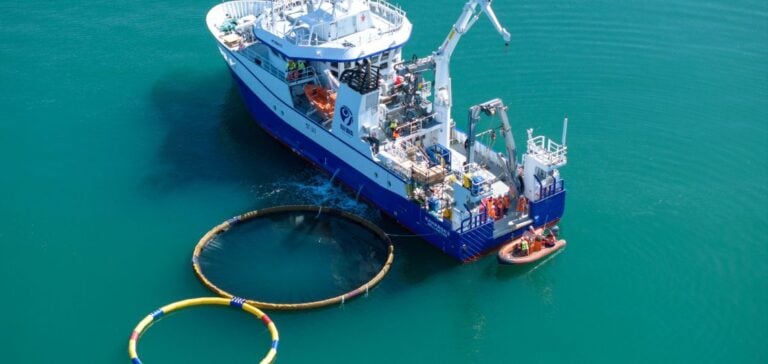Gigablue, a company specializing in carbon dioxide (CO₂) capture and sequestration technologies, has announced the signing of a strategic agreement with SkiesFifty, a major player in sustainable aviation. This partnership aims to capture and sequester 200,000 tons of CO₂ over the next four years.
Innovative technology for sustainability
The solution developed by Gigablue is based on marine carbon fixation and sequestration (MCFS). Using an innovative substrate, the process stimulates phytoplankton growth in a controlled environment before guiding the biomass to deep waters for permanent storage.
This method, relying on natural resources such as sunlight, water, and gravity, stands out for its sustainability and respect for marine ecosystems.
A model for the aviation sector
By strengthening its partnership with Gigablue, SkiesFifty aims to address the growing challenges of reducing aviation emissions. “Our mission is to invest in innovative technologies capable of accelerating the transition to sustainable aviation,” explains Simon Talling-Smith, founder of SkiesFifty.
According to a report by McKinsey & Co, the aviation industry must diversify its approaches to bridge the gap between the supply of sustainable fuels and rising demand. Solutions like Gigablue’s offer an essential complementary alternative.
Perspectives and global impact
With this agreement, Gigablue aims to capture one gigaton of CO₂ by 2035, further cementing its role as a leader in the energy transition. Moreover, regulatory frameworks under development in the United States and Europe are expected to facilitate the certification and standardization of marine carbon credits.
Support from the National Institute of Water and Atmospheric Research (NIWA) of New Zealand ensures the scientific reliability of Gigablue’s measurements. Mike Williams, Chief Scientist at NIWA, emphasizes, “The collaboration with Gigablue illustrates the importance of ocean solutions in addressing the global climate crisis.”
This agreement represents a significant step forward for adopting marine technologies in industrial decarbonization strategies.






















